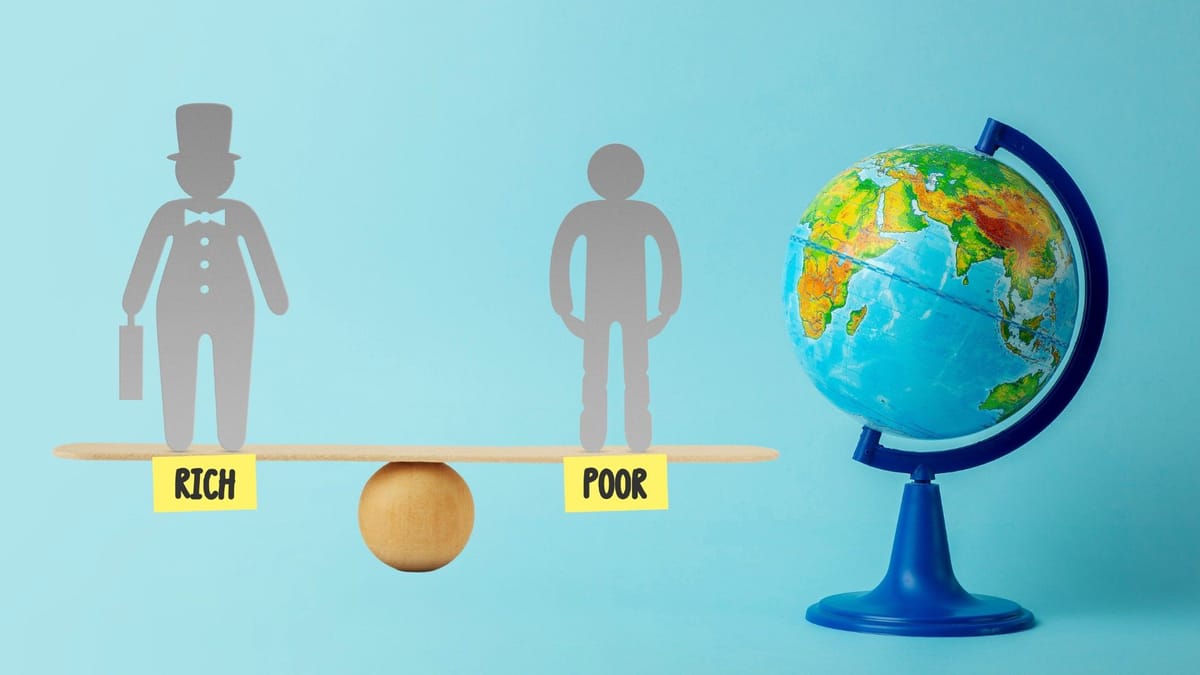Bridging the Gap: Peace Network's Mission to Combat Global Inequality

The disparity between the developed and developing worlds has become increasingly pronounced in recent years. According to the World Bank, over 700 million people live on less than $2.15 a day, primarily in Sub-Saharan Africa and South Asia. In contrast, developed nations continue to experience rapid technological advancements and higher living standards, exacerbating the economic divide. This growing inequality is reflected in access to healthcare, education, and basic necessities, with millions in the developing world lacking opportunities to break free from the cycle of poverty.
Addressing these pressing challenges requires innovative and scalable solutions. The Peace Network, a revolutionary non-governmental organization (NGO), is leveraging blockchain technology to tackle these inequalities head-on, making a tangible difference in communities across the globe.
The Peace Network: A New Era of NGOs
The Peace Network represents a new model for humanitarian aid, combining the power of blockchain technology with a focus on transparency, efficiency, and immediate impact. Through this approach, the organization has conducted numerous charity missions in underserved regions worldwide, demonstrating its commitment to creating a more equitable future.
Charity Missions Across the Globe
The Peace Network has completed impactful missions in:
- Thailand
- Indonesia
- Liberia
- Laos
- Pakistan
- Sierra Leone
- Vietnam
- Nigeria
- Ghana
- Benin
- Togo
- Philippines
- Malaysia
These missions have provided critical support, including food, education, and healthcare, directly benefiting thousands of individuals. By using blockchain technology, the Peace Network ensures that every donation is tracked, reducing waste and fraud while fostering trust among donors.
Bridging Inequalities Through Technology
The Peace Network’s humanitarian efforts highlight the potential of blockchain technology to address systemic inequalities. Blockchain’s ability to provide transparent, tamper-proof records of transactions ensures that aid reaches those who need it most without intermediaries siphoning off funds. This technological advantage is particularly relevant in regions where corruption often hampers aid distribution.
Furthermore, blockchain can facilitate access to financial services for the unbanked population. According to the Global Findex Database, 1.4 billion adults worldwide remain unbanked, with the majority residing in developing nations. By integrating blockchain-based solutions, the Peace Network is not only addressing immediate humanitarian needs but also paving the way for long-term economic empowerment.
Strategic Bitcoin Reserve: A Game-Changer for Crypto Markets
In related news, significant developments in the crypto finance world are creating optimism for the market's future. Recently, the Bitcoin Policy Institute drafted an executive order under President Donald Trump’s administration to establish a Strategic Bitcoin Reserve (SBR) within the U.S. Treasury’s Exchange Stabilization Fund (ESF). This initiative underscores the growing recognition of Bitcoin as a valuable strategic asset.
Key Points of the Proposal:
- National Strategic Asset: The draft positions Bitcoin as a core component of the U.S. financial system to enhance economic security and maintain leadership in the global digital economy.
- Value of Bitcoin: Highlighting Bitcoin’s decentralized nature and limited supply, the proposal compares it to digital gold, emphasizing its potential as a high-value asset.
- Strategic Reserve Designation: Recommends allocating $521 billion for Bitcoin acquisition to diversify holdings, foster innovation, and support domestic industry growth.
- Oversight: The Treasury Secretary would oversee the SBR, ensuring efficient management and strategic alignment with national interests.
The Future of Crypto Markets
These developments signal a promising future for the cryptocurrency market. As governments and institutions recognize Bitcoin’s value, the market is poised for significant growth. Analysts predict 2025 will be a landmark year, with increased activity and innovation driving the industry to new heights. The projected $800,000 valuation for Bitcoin showcases its potential as a cornerstone of the global economy.
A Synergistic Vision
The Peace Network’s integration of blockchain technology in its humanitarian efforts and the strategic moves in crypto finance both reflect the transformative potential of decentralized systems. Together, these advancements pave the way for a more equitable and innovative world.
As the crypto market grows and blockchain-based solutions expand, the lines between humanitarian efforts and financial innovation will blur, creating opportunities to address global inequalities on an unprecedented scale.

